1) Some of my best friends are multiracial
AXIOS: Trump attack on Harris comes as U.S. multiracial population exploding
Okay, “friends” is a stretch, but I do think Bruno Mars walks on water.
Globalization is multiracial in both nature and dynamic: if you connect, you blend. It’s as simple as that.
Our “New World” in the Western Hemisphere (the Americas as a whole) has been blending Africans, Asians, Europeans, and Amerindians for half a millennia. Granted, a very negative way to start the ball rolling (genocide, slavery, imperialism), but the outcome is the outcome: we are already quite blended in the True West. And yeah, that gives us our own unique civilization — a diversity and genetic strength that we earned the hard way. So why the hell not be proud of it?
I’m not from Europe; I’m from the Americas and we are amazing.
America set in motion modern globalization and globalization has taken the “mixing of the races” to an entirely new and more profound level.
Scary if you need homogeneity in your White Christian Nationalist vision; thrilling to the rest of us who find diversity endlessly fascinating and empowering.
You’ve heard the comedians on TV going on about “why are they so many inter-racial families in commercials nowadays?” [Granted, there are a LOT!]
Well, it’s because that’s the fastest growing group of consumers in America, and America follows the buck — wherever it may lead.
Bit crass? Sure. But it beats the alternative of going by skin tone or sexual/gender orientation.
You know the bit: Why do I have to serve THOSE people?
Hell, just complain to SCOTUS and you can justify any bigotry on the basis of religious freedom.
Multiracial: over ten percent of America today and sure to be more as the years go by. Immigrants in America have this habit of having high rates of intermarriage …
So, piss them off at your own risk, Mr./Ms. Politician seeking votes.
America’s future is largely non-White (2040s) and non-Christian (2060s): those majority-minority tipping points have already been scheduled (did you accept the invite?). All that means is that we’re becoming like the rest of our hemisphere — an inevitable path given US-style globalization and its profound remaking of humanity and our planet.
This is the fundamental bond driving fundamentalism today: reject globalization, reject your country’s more diverse future. Define yourself exclusively; otherize the rest.
The only way to stop this mega-trend in your universe is to enclave or exclave yourself off in some segregated mini-world. Those people with those needs are moving in those directions — usually with guns in hand.
The rest of us are just staying busy trying to make democracy work because we haven’t lost faith in it yet, like so many on the Far Right.
Hell, we’re just getting started. Democracy is built for evolution with its many-paths-to-happyiness mindset.
We still hold such truths to be self-evident.
2) Mini-Sparta has arrived
FOREIGN AFFAIRS: The UAE’s Secret War in Sudan
Nothing says you’ve arrived as a great power better than conducting a secret war beyond your borders.
Another interesting bit on UAE: it is the number one source of foreign direct investment in 12 countries worldwide — virtually equal to China (13) and up there with mining giant Canada (12).
UAE is a player to be watched.
3) Stiglitz making cents
THE HILL: America’s shortsighted, lopsided capitalism was never built to last
The man nails it:
Compared to almost any other economy in the world, the U.S. is in great shape today, but with three important caveats:
First, the economic divides are too great. Second, the shortsighted behavior of corporations has led to underinvestment and a lack of resilience. Third, the right’s drive to hamstring governments has led to insufficient public investment, inadequate public services and deficient regulations.
The last has resulted in a fraying infrastructure, poor health and education among large portions of an insufficiently motivated labor force and costly pollution and market power.
This is why Millennials and Zs aren’t having babies: they are pessimistic about our country’s economic future. Having babies is the ultimate act of optimism.
I know: we had three and adopted three. Fast forward me to this timeframe and I’d be up for one or two — max.
Bring on the Progressive Capitalism. We need another round and at least a couple of Roosevelts!
4) Roll, roll, roll brother trucker!
NYT: Riding With a Trucker, Witnessing India’s Past and Potential
Just some fascinating reporting that caught my eye because Vonne and I spent some hours on the road (with a driver, of course) in India in February and it was interesting to travel their version of interstates and stop at rest/gas/fast food stops.
India is just beginning to connect up its interior economy with roads and railroads. This is why the minister in charge of all that was greeted like a rock star at the Global Business Summit where I spoke.
All that connectivity and infrastructure alters a nation’s sense of time, like “railroad time” did in America back in the day:
“India has changed on the ground, but the perception has to change,” said Amitabh Kant, a senior government official who is close to Mr. Modi, and the author of “Made in India,” a book about the nation’s industrial reach. “Logistics costs are falling very sharply.”
India gets 17 miles of new highway EVERY DAY. That equates to a 60% increase in roads over the last decade and a tripling of freeways. This is a big part of Modi’s support: the man delivers delivery.
Plenty of miles to go, though. The infrastructure is getting there but the “flesh” remains weak: no AC in trucks, few places for drivers to rest, the details that matter.
All of this needs to be radically improved for India to exploit its emerging demographic dividend and integrate itself in global value chains — the whole purpose of which is to trigger domestic market growth and the means to meet that rising demand.
That’s what “rising” is all about: when your demand function gets so big you can get rich simply on your own market. THAT’s when you typically start behaving better in international trade — not before.
India remains the country to watch. It is an amazing show.
5) Old wine in old bottles
RAND: Commission on the National Defense Strategy
AXIOS: U.S. not ready for global war, commission warns
Read it and tossed it.
A World War II mobilization is off the table, we are told.
Wow. Thanks for the update and may I add, Thank God!
China basically rules the military roost in East Asia — go figure. Isn’t it America’s job to rule every roost all over the world — despite all this emerging multipolarity?
Don’t you just love a vision of tomorrow that is designed to freak you out?
From Axios:
"We're very good at fighting the last war," Jane Harman, the commission chairperson, said at the Aspen Security Forumahead of the report's rollout.
I would add that we’re still very good at planning for the last war, based on this report, which I found very much trapped in a 20th century mindset. Just the concept of “global war” is all wrong.
The Axios future-of-war bit is a far better summation.
America is built to enforce the rules of state sovereignty the world over. That is an unrealistic standard that no longer makes strategic sense (and yes, the Trumpers get that right) or even defines the true nature of the superpower competition this century (mostly about capturing and winning the brand loyalty of the Global South). Commissions like this see the emerging unmanned and cyber stuff but just stack it on top of outdated platform-centric warfare notions that would require WWII-like industrial efforts (now to be bemoaned as impossible).
I mean, really! Watch Ukraine and tell me that the future of warfare is large scale industrial bases cranking out traditional platforms.
This is America pinning for World War II because it’s familiar and such an amazing story/standard. I love the documentaries like every other middle aged man because I know there will be a test!
But that imagery and vision has little to do with global security in the 21st century. We should not be taking our cues from Moscow and Beijing with their retrograde irredentism.
Instead, track China’s quantum grand strategy of Belt & Road plus Huawei’s Safe/Smart City.
Kiev is a better avatar of the future of warfare. So too is, by accident, CrowdStrike.
We need to permanently retire all references to WWII, to include “Marshall Plans” constantly being proposed. That’s all just crazy, unsustainable nonsense — an era better left behind in all of its pre-nuclear/MAD glory.
6) How can we be so far behind in military capacity and still dominate global missile sales?
MEDIUM: The Deadly Silk Road: Visualizing the Global Arms Trade Network
There’s what you make, there’s what you use, there’s what you import, and then there’s what’s left over for export.
America seems to have a lot of missiles left over, ja?
Alas, there’s never enough when you want to rule the world.
There’s nothing more dangerous than a great power with a vision of its global dominance that is at odds with the reality of its capabilities.
America has it bad right now, but not as bad as Russia and China.
Whenever we’re not doing well enough economically, there are those in our system all too eager to switch the argument over to our having “fallen behind militarily.”
The future isn’t defense; it’s security that knows no borders.
China is racing toward that future, blithely unaware of the imperial burdens it is assuming. America is growing self-aware, but slowly.
7) Pay attention! Your life depends on it.
CNN: Heat is testing the limits of human survivability. Here’s how it kills
H/T Vonne Barnett (spouse).
The gist:
Extreme heat is turning ordinary activities deadly.
Like, do it the old way and you just may end up killing yourself.
Heat is the deadliest type of extreme weather, and the human-caused climate crisis is making heat waves more severe and prolonged. Add humidity into the mix, and conditions in some places are approaching the limits of human survivability — the point at which our bodies simply cannot adapt.
There’s America’s New Map in a nutshell: Our world system is bumping into all manner of environmental stressors that are deadly damaging to nation-states in lower latitudes. These stressors will kill many of those weaker states (and there are plenty out there).
Geopolitical orphans will be created — and put on the move poleward.
That means the old ways of thinking about global integration (more East-West) must be replaced by radically new ones (far more North-South).
Our world system isn’t built for that change; it will need to be dramatically revamped and that is the stuff of grand strategy.
We are heading into uncharted territory here. Behave accordingly.
8) Putin and Vance … separated at heroic birth?
WAPO: Have babies for Russia: Putin presses women to embrace patriotism over feminism
All the single cat ladies out there … If you liked it then you should have put a Hero Mother medal on it!
Vlad said the quiet part out loud, just like JD:
“Many of our grandmothers and great-grandmothers had seven or eight children, and maybe even more,” Putin declared to an audience of ultraconservative religious and political figures who had convened in the State Kremlin Palace in November. “We should preserve and revive these wonderful traditions.”
Pick up the pace, Mamaw!
The baby gap is coming. Count on it.
But it’s only about White babies. Nobody ever says we need more non-White babies — NOBODY.
And even as it calls on women to sacrifice for the fatherland, Russia has regressed in basic protections for women.
Where have I seen that before?
Putin has restored a 1944 Soviet “Heroine Mother” award for mothers of 10 or more children, as well as an “Order of Parental Glory.” From the Kremlin’s situation room, Putin on May 30 held a video conference with nine large families across Russia who had won such awards.
JD, take notes.
Who doesn’t want to crank out ten kids for Russia’s “meat wave” attack strategy?
These is strategic messaging that America could easily emulate, am I right?
9) This stick thing continues to work its magic in US foreign policy
WAPO: Trump White House was warned sanctions on Venezuela could fuel migration
It’s always funny how that works: try to punish a government and you mostly end up punishing the people. And, as we learned in Iraq pre-invasion, the ones who most tend to die are the kids.
It’s just funnier when a Trump Administration sets this dynamic in motion and then decries the resulting “invasion” by claiming they’re all coming from insane asylums and prisons.
The Trump White House was warned that harsh sanctions on Venezuela could accelerate that country’s economic collapse and speed an exodus of millions of migrants to neighboring nations … The Trump administration nevertheless imposed some of the harshest economic penalties in U.S. history on Venezuela in response to documented human rights abuses, extrajudicial killings and corruption by the regime of dictator Nicolás Maduro. The sanctions are fiercely defended by proponents, who say they were a necessary response to one of the most brutal crackdowns on civilians in two decades.
Always with the good intentions, and yet …. Venezuelans are coming to America in droves.
“This is the point I made at the time: I said the sanctions were going to grind the Venezuelan economy into dust and have huge human consequences, one of which would be out-migration,” said Thomas Shannon, who served as undersecretary for political affairs at the State Department under President Donald Trump.
“The sanctions clearly helped generate faster out-migration,” Shannon said. “And you knew it was only going to be a matter of time before these people decided to migrate north.”
Venezuela is estimated to have a population of about 28 million. We now estimate that 7 million of them have left since 2012 — or roughly a quarter. The US border has seen 800k come our way since 2021.
With our sanctions, the United States triggered the worst peacetime economic decline of a country in recorded history.
What is the lesson here?
Think about climate change doing the same to a host of Central and South America economies.
Then think about one-quarter of those populations being put on the move out of similar desperation.
Then think about how many show up in America.
We can extend to them or they can come to us. Either way, it’s happening.
And yeah, you should be nervous about that future.
10) Where climate change will drive the most change
NYT: Food as You Know It Is About to Change
David Wallace-Wells at his best:
It can be tempting, in an age of apocalyptic imagination, to picture the most dire future climate scenarios: not just yield declines but mass crop failures, not just price spikes but food shortages, not just worsening hunger but mass famine. In a much hotter world, those will indeed become likelier, particularly if agricultural innovation fails to keep pace with climate change; over a 30-year time horizon, the insurer Lloyd’s recently estimated a 50 percent chance of what it called a “major” global food shock.
But disruption is only half the story and perhaps much less than that. Adaptation and innovation will transform the global food supply, too. At least to some degree, crops such as avocados or cocoa, which now regularly appear on lists of climate-endangered foodstuffs, will be replaced or redesigned. Diets will shift, and with them the farmland currently producing staple crops — corn, wheat, soy, rice. The pressure on the present food system is not a sign that it will necessarily fail, only that it must change. Even if that progress does come to pass, securing a stable and bountiful future for food on a much warmer planet, what will it all actually look like?
This is why food production was a key thread in America’s New Map: crops are being forced to move just like the rest of the world’s species:
I call this the “greatest real estate transaction in human history” and no money is changing hands.
The imagery here is staggeringly evocative (my hat off to Wallace-Wells):
More than one-third of the planet’s land is used to produce food, and 70 percent of all fresh water is used to irrigate farmland. Pacing the supermarket aisle, you might think that whatever you’re buying for lunch or dinner is produced out there somewhere on the periphery of modern life. But globally, the equivalent of South America is now used to grow crops, and the equivalent of Africa is used to graze animals. Combined, this is more of the world’s surface than is occupied by forests and more than 10 times as much land as is occupied by all human settlement. And according to the World Resources Institute, we may need to add almost two Indias to the world’s existing farmland to meet food needs in the second half of this century. — but adding that farmland means cutting down forests, which store carbon, in order to graze more animals, which produce carbon.
I am definitely building a slide out of that paragraph. That is some serious broad framing!
Another intriguing bit:
If food waste were a country, it would be somewhere around the world’s third or fourth biggest emitter of carbon.
I actually have an answer for that one: a radical new approach to cold-chain management of food from the field to the fork. I recently co-authored a white paper with executives from a start-up company working that angle: Hyve Systems’s In-Field Pre-Cooling Cold-Chain Management.
Gotta get that baby published somewhere.
One more nugget:
About three-quarters of all global agricultural land is vulnerable to substantial climate disruptions, NASA’s Jonas Jägermeyr says, “so mostly everywhere you look, things will change in one way or the other.” And that probably means the food you’re eating, too.
I read everything David Wallace-Wells writes for the Times. You should too.
11) When the going gets tough, US Latinos start new companies
WSJ: Latinos Are Starting U.S. Businesses at a Torrid Pace
AXIOS: Immigrants and Latinos are most entrepreneurial in U.S., study finds
Stealing “Black jobs,” my ass.
H/T Jeffrey Itell.
As the accompanying AXIOS analysis put it:
Latinos also had staggeringly higher rates of new business ownership than any other racial or ethnic group.
Somebody send the memo to JD, who took Tim Scott’s Black job.
12) Local money is usually the smartest money
WAPO: Trump’s presidential bid has the support of only half of his Cabinet
When you consider a direct investment in a country, it’s always smart to consult with local money to see what it thinks. Those people have the direct experience.
Gotta say I am disappointed that James Mattis isn’t speaking up like Esper.







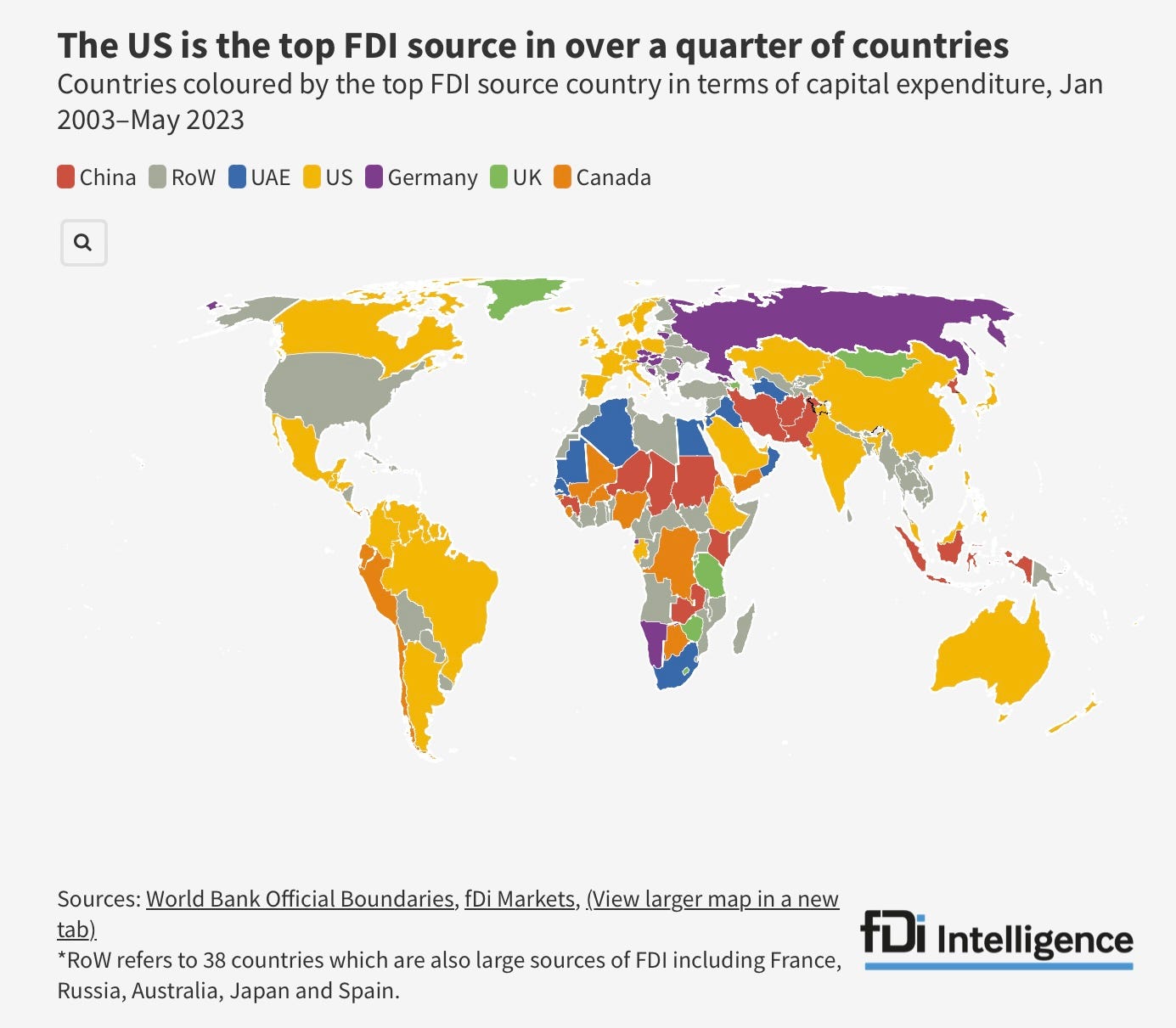



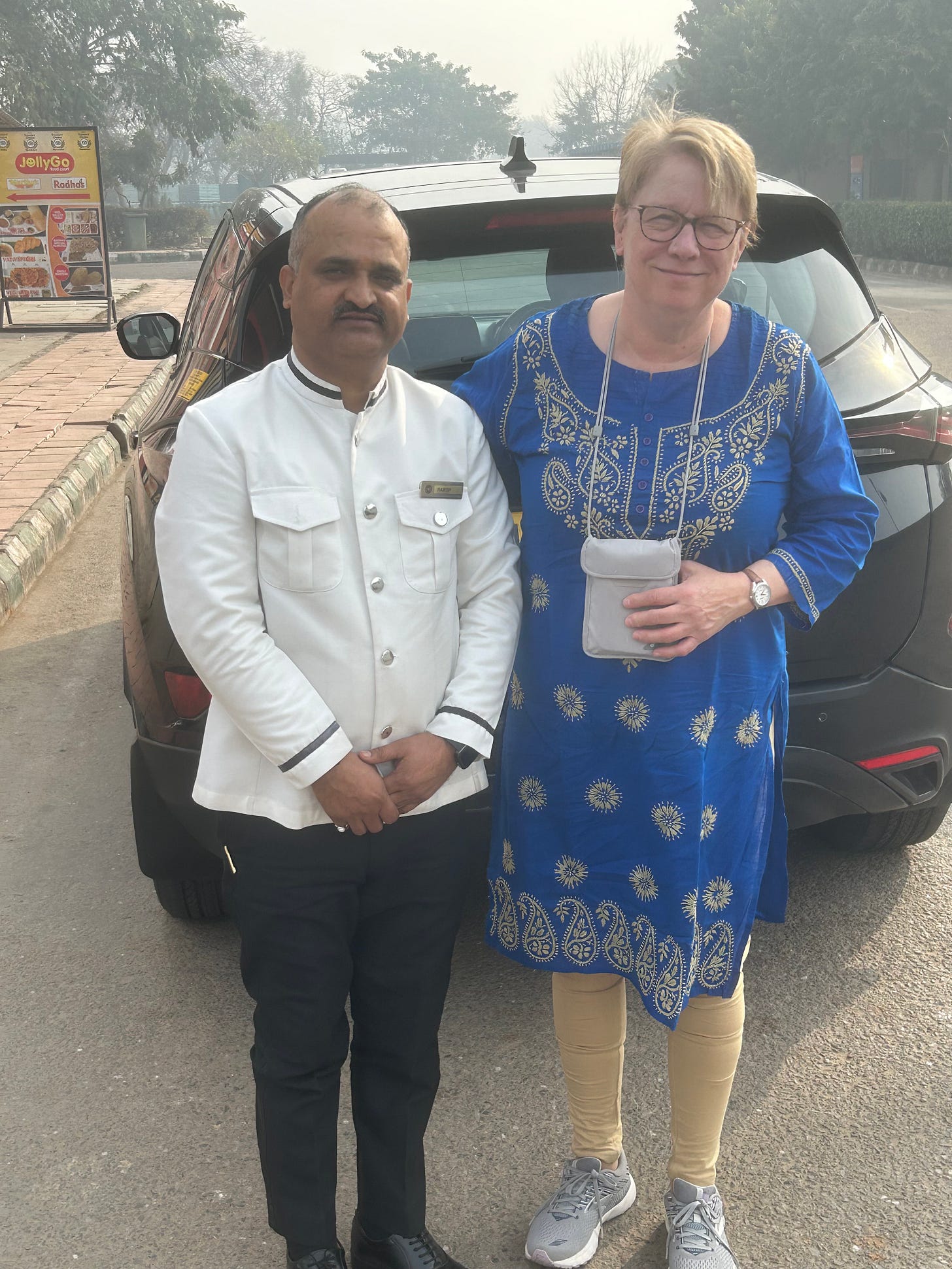



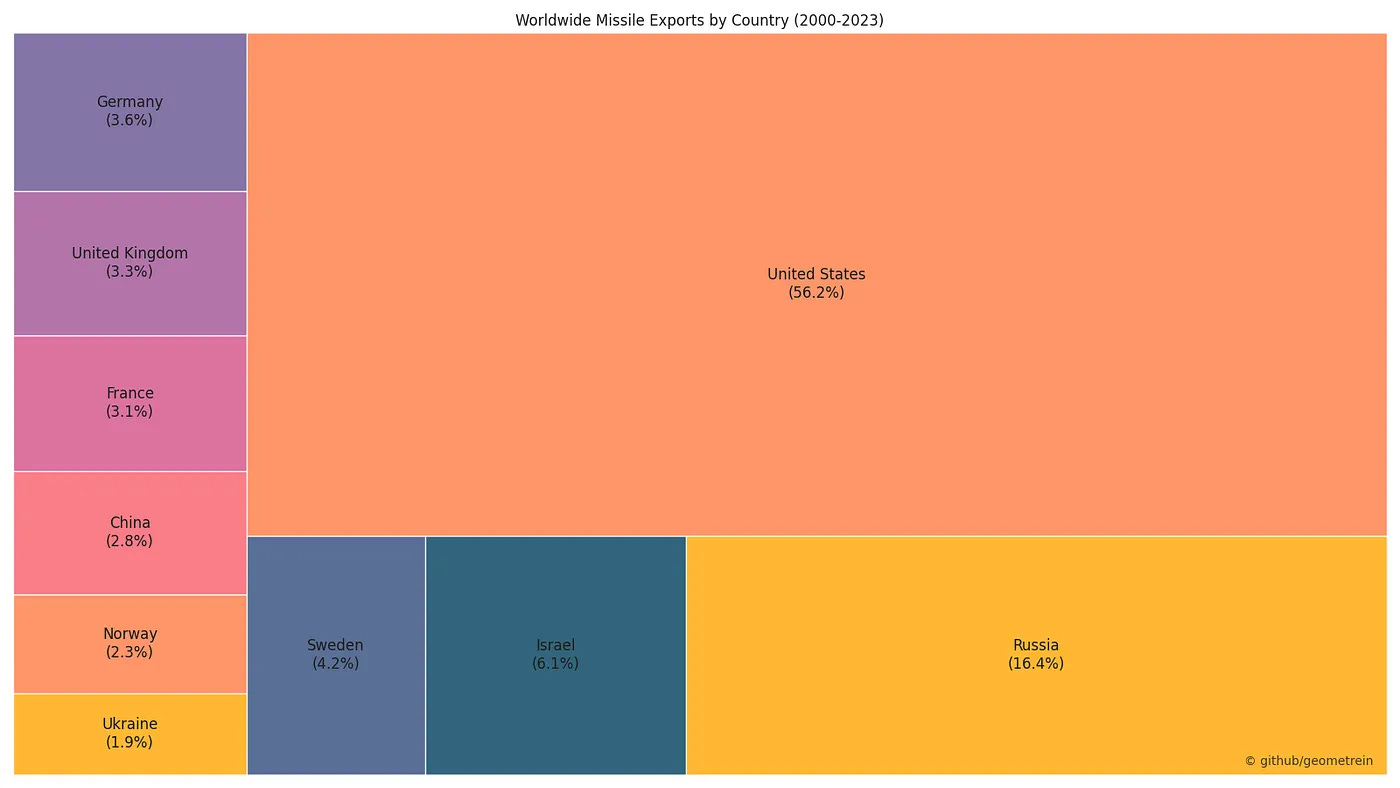
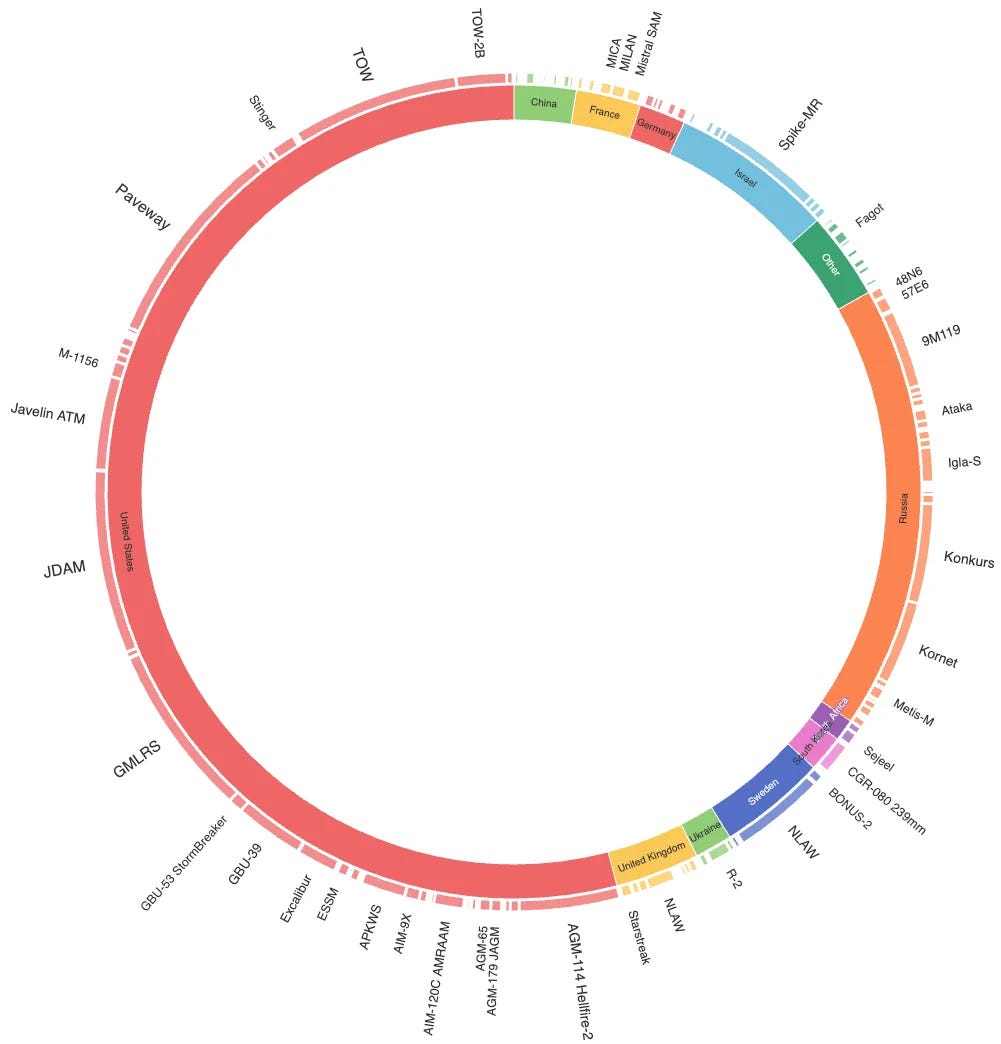
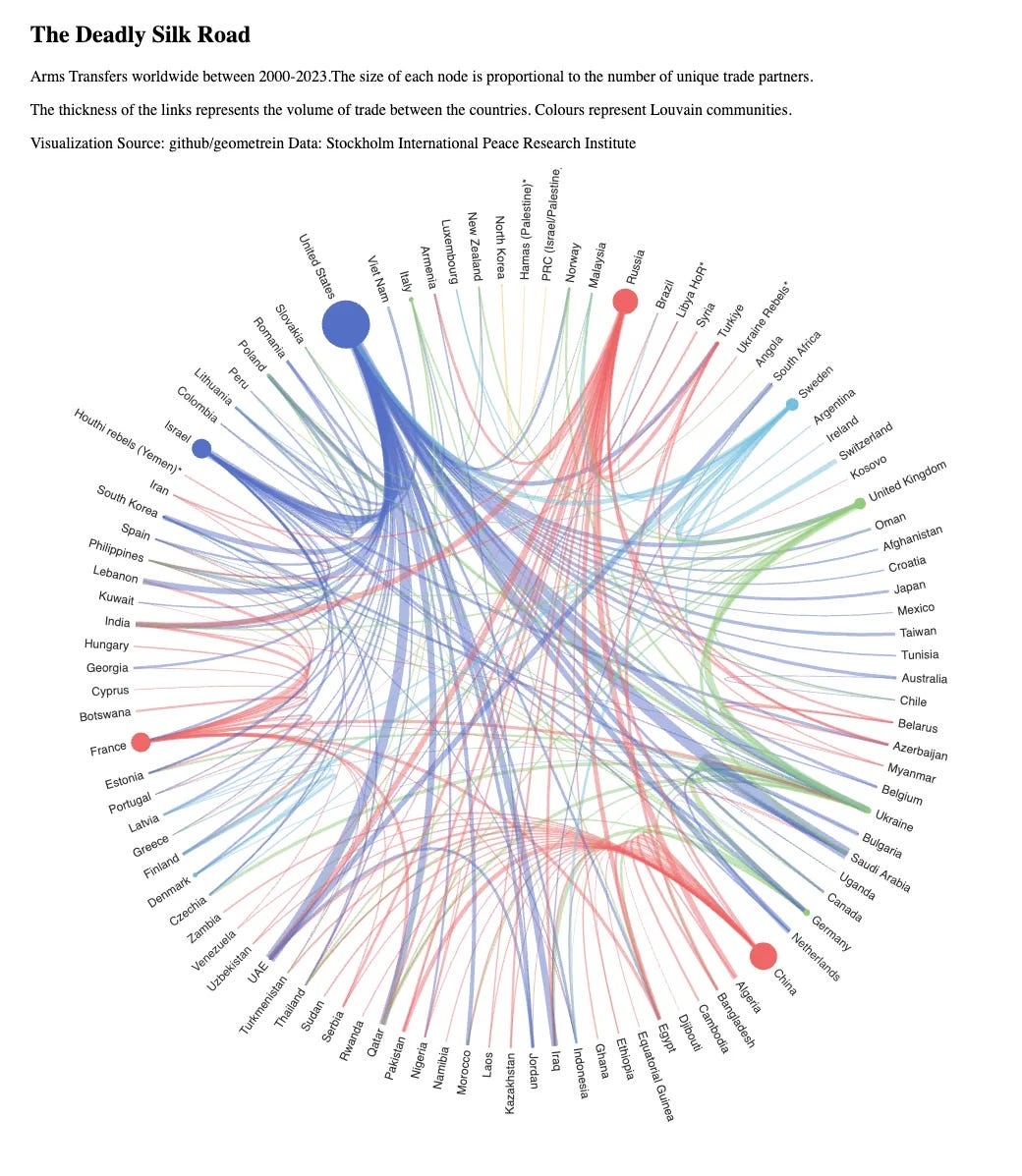



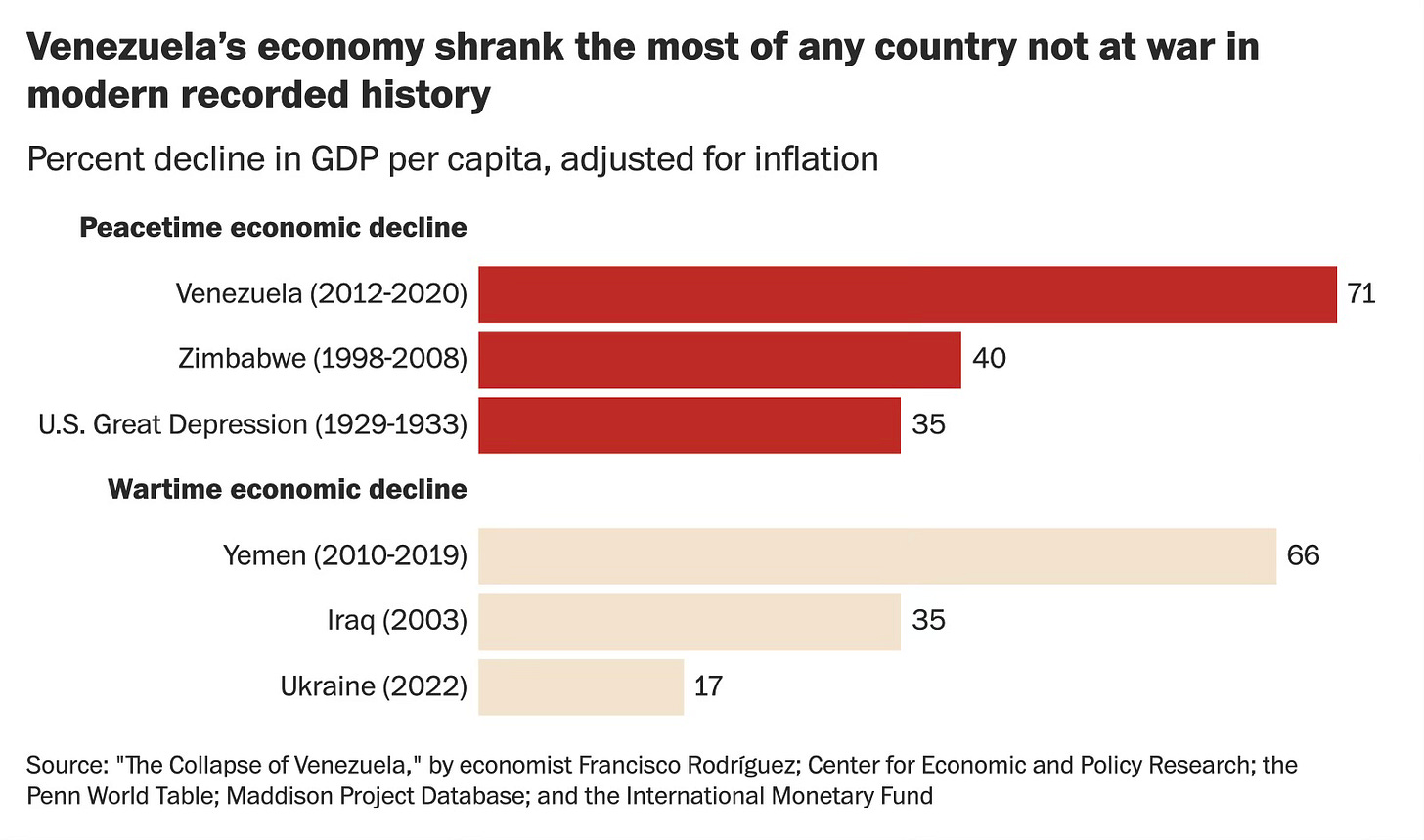
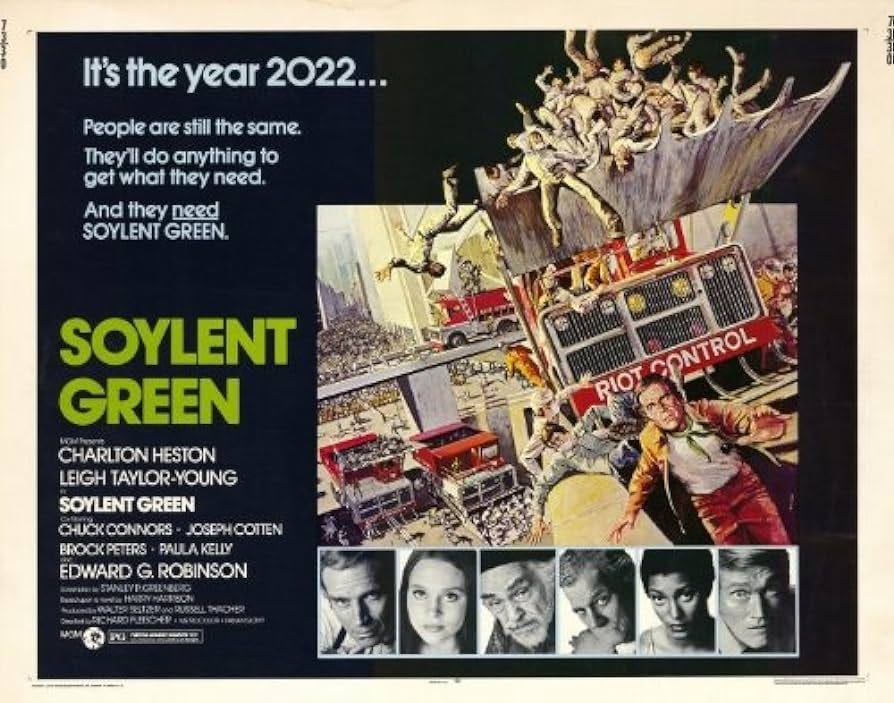

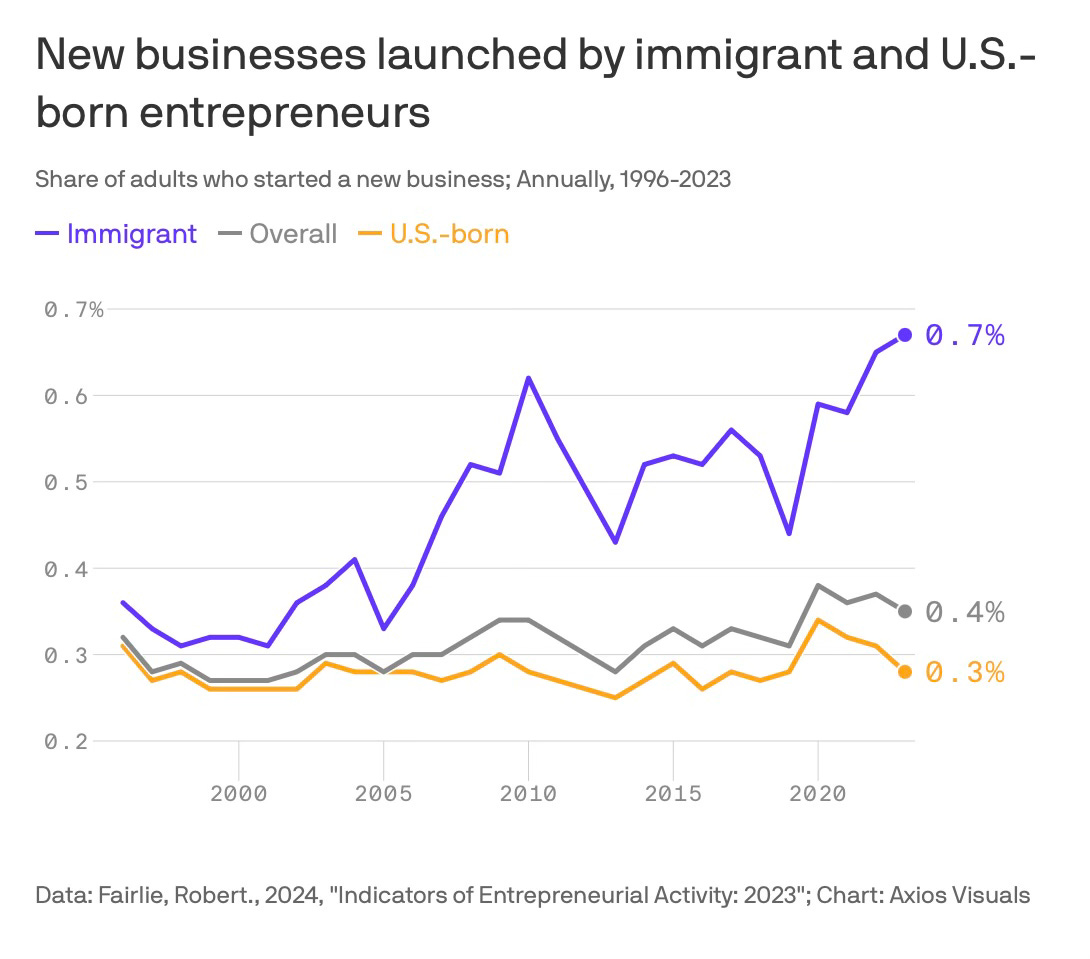



Noah Smith interprets Venezuela's economic situation differently. I tend to concur our economic sanctions are too widespread but ultimately less impactful than your analysis implies.
https://www.noahpinion.blog/p/how-maduro-and-chavez-wrecked-venezuelas